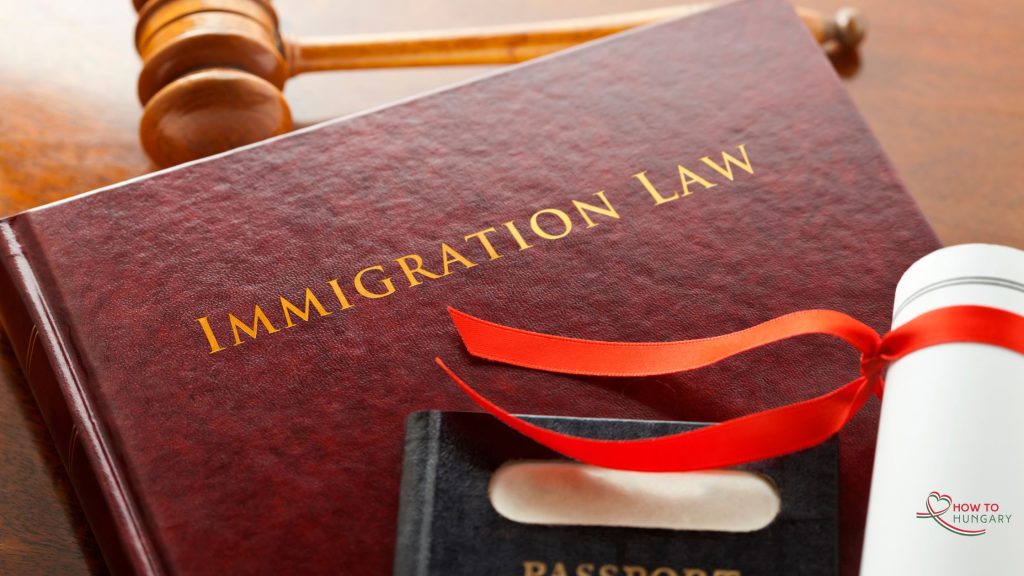Hungary’s National Residence Card Rejections: What’s Really Going On?
If you’ve been affected by Hungary National Residence Card rejections in recent months, you’re not alone. Financial instability, accommodation issues and recently the lack of interest of Hungary are the most common reasons for rejections.
In March-April 2025, many third-country nationals have received letters citing the vague explanation that their stay is “not in the interest of Hungary.” Understandably, this has left applicants confused, frustrated, and unsure of what to do next.
Let’s take a calm, clear look at what’s happening—and what your options are if this applies to you.
What Is the National Residence Card?
The NRC is a residence permit for third-country nationals who spent at least 3 consecutive years in Hungary and have specific types of residence permits with sufficient accommodation, healthcare, income and savings. It’s commonly used by spouses, children, and family members looking to stay long-term. Often called, “NPR” or “National Permanent Residence”.
Historically, it’s been a well-defined process. But as of 2025, things have changed.
The New Law Behind It All
The current trend began after Act XC of 2023 came into force in January 2024, introducing a completely revised immigration framework. However, many of the recent National Residence Card rejections—particularly those citing ‘not in the interest of Hungary’—have become more common in early 2025 due to poorly prepared applications.
This law replaced the earlier 2007 framework and brought in stricter rules, longer processing times, and broader discretionary powers for authorities reviewing applications.
The intention behind the change was to modernise the system and align it more closely with current migration policies. However, one clause in particular has led to confusion—the ability to deny applications based on a broad interpretation of “national interest.”
You can read more about the law here: International Labour Organization (ILO) NATLEX Database: Offers an English translation of the Act. Access it here: NatLex

Recent changes to Hungary’s immigration policy have led to an increase in National Residence Card rejections—often stamped with little explanation.
Why Are Some Hungary National Residence Card Being Rejected?
The phrase “not in the interest of Hungary” may sound abstract—but it’s becoming more common in rejection letters. And in many cases, without a proper and detailed reasoning.
It’s worth noting that under the current law, the authorities do have discretion in assessing applications. That said, when a decision significantly impacts someone’s life, it’s expected to be well explained and supported by facts.
When that doesn’t happen, it can feel unclear and unsettling.
What Can You Do If You’re Rejected?
Don’t panic—but do act. Here are the steps you should take:
1. Appeal Immediately
Hungarian law allows you to appeal. If the reasoning provided is vague or insufficient, that could strengthen your case. Don’t forget: you have 15 days to submit the appeal which starts from receiving the decision via post or in person.
2. Submit Strong Supporting Evidence
Reinforce your application with:
-
Documents showing family, work, or property ties to Hungary.
-
Proof of your financial independence and social contributions.
-
Letters of recommendation from Hungarian employers, neighbours, or community leaders.
-
Volunteer records, if you’re active locally.
3. Hire a Lawyer
It’s often helpful to work with someone experienced in Hungarian residency law. They can guide you through the appeal process and help you build a strong, well-documented case.
Need help? Feel free to email me directly.You can also search the Hungary Immigration Help Facebook Group or reach out to other immigration lawyers in trusted expat forums and legal networks.
Need expert help challenging a rejection?
I highly recommend reaching out to Dr. Mariann Minkó-Miskovics, a Hungarian lawyer with extensive experience successfully overturning residence permit rejections.
👉 Learn more or contact her here
Why These Cases Need Clarity
Even when officials have broad authority, they’re still expected to provide clear, reasoned decisions. If a rejection lacks detail, it can be challenged, first at the authority and if still rejected, then in court. There have already been successful appeals on this basis.
Legal clarity helps everyone: applicants, decision-makers, and the system as a whole.
This Affects Everyday People
These aren’t edge cases. The rejections are affecting families, professionals, retirees, and students—people who have invested time, effort, and emotion into building lives here.
If that’s you, please know: you’re not alone, and you do have options.
Final Tips & Resources
-
Appeals must be filed quickly. Check your decision letter for deadlines.
-
Get help if you’re unsure. Legal experts and lawyers can make a real difference.
- Keep records of all communication, documentation, and supporting evidence.
-
Stay informed by joining groups like:
-
Hungarian Helsinki Committee – Legal aid and human rights support
Summary
Hungary’s immigration rules changed in 2025, and many applicants are still navigating the shift. While some recent Hungary National Residence Card rejections have raised eyebrows, they also highlight the importance of clear documentation and persistence.
If your application has been affected, take a breath, gather your documents, and act. This is a process—and one you don’t have to go through alone.
📘 Need More Help Navigating Hungarian Immigration?
This blog post is just the beginning. My ebook, HOW TO HUNGARY: Budapest & Beyond, includes an entire section on residency types, visa options, and how to handle tricky situations like NRC rejections. It’s based on my own experiences, legal input, and the latest 2025 policy updates.
Whether you’re planning to move, already here, or stuck in bureaucratic limbo—this guide has everything you need.
👉 Get the book now and take the guesswork out of Hungarian immigration.
Disclaimer: I’m not a lawyer, and this post isn’t legal advice. I’ve written it to share insights and resources based on personal experience and research. Immigration rules can be complex and case-specific—so please consult a qualified immigration lawyer for guidance on your individual situation.

Anikó Woods is a Canadian-Hungarian writer, technology specialist, and digital strategist who swapped Toronto traffic for Hungarian bureaucracy. She’s the creator of HOW TO HUNGARY: Budapest & Beyond. Since moving to Hungary in 2017, she’s been deep in the paperwork trenches – fact-checking, interviewing experts, and helping others make sense of the madness. Her writing turns chaos into clarity, with a few laughs (and wine recommendations) along the way.

0 Comments